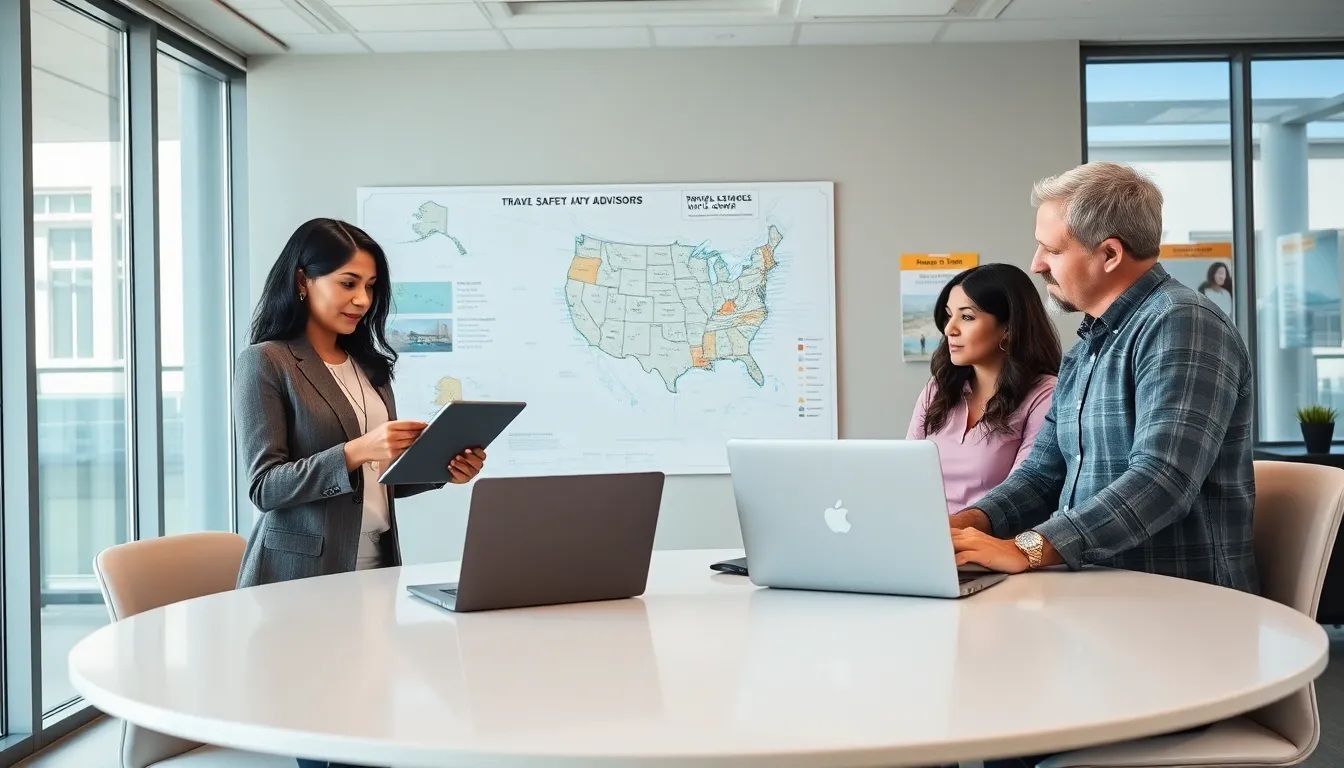Table of Contents
ToggleTraveling can feel exhilarating. Imagine standing under the Eiffel Tower, savoring authentic French pastries, or exploring the rich culture of Japan. Yet, among all the excitement, there’s a nagging voice asking, “What if something goes wrong?” Fear not. With the right knowledge and preparation, everyone can enjoy the journey while keeping safety in check. Here’s the complete guide packed with essential tips to ensure your travels are not only memorable but also secure.
Understanding Travel Safety

When it comes to travel safety, understanding potential risks is the first step. Accidents, theft, and health emergencies can occur anywhere, from the bustling streets of New York City to the serene beaches of Bali. To combat these risks, travelers should arm themselves with knowledge. Whether it’s knowing local customs or understanding how to act in emergency situations, awareness can significantly enhance safety. Engaging with travel forums, reading up-to-date travel advisories, and keeping abreast of current events at your destination can make all the difference.
But wait, there’s more. How about tapping into technology? Many travel apps can provide real-time safety updates. From maps guiding you through unfamiliar areas to alerts about local emergencies, handy tools are at every traveler’s fingertips.
The Importance Of Travel Insurance
Many travelers often underestimate travel insurance. It’s like wearing a seatbelt, boring, but a must. Just when you think nothing can go wrong, life throws you a curveball. Flight cancellations, lost luggage, or sudden illness can derail your plans. Having travel insurance is your safety net.
Plus, it allows you to travel with peace of mind. If that unforeseen event arises, you won’t be left scrambling. Instead, you can focus on enjoying your trip. Look for an insurance plan that covers medical emergencies, cancellations, and even theft, because who wants to worry about lost belongings while sipping a mimosa on the beach?
Planning For A Safe Journey
Packing Essentials For Safety
Packing isn’t just about how much you can stuff into your suitcase. It’s also about what you choose to bring. Always include a basic first-aid kit. Band-aids, antiseptic wipes, and pain relievers should be in everyone’s bag. Also, consider packing a portable charger for your electronics and a reusable water bottle to stay hydrated without buying overpriced drinks at the airport.
Researching Your Destination
Before you hop on that plane, do some assignments. Research the area you’re visiting. Knowing cultural norms, safe neighborhoods, and local emergency numbers can save lives. For instance, understanding whether a region is prone to pickpockets or other petty crimes can drastically alter your itinerary. Websites, travel blogs, and local news sources can provide essential insights that enhance your safety.
Staying Connected While Traveling
Staying connected is another vital aspect of travel safety. Ensure your phone has a working data plan or access to Wi-Fi, which can be lifesaving in emergencies. Share your itinerary with someone at home, providing additional peace of mind. Also, consider using messaging apps that work over Wi-Fi, whatsapp, for instance, allows you to communicate without incurring hefty international fees.
Health Precautions While Traveling
Health precautions can significantly impact journey safety. Make sure your vaccinations are up to date according to the Centers for Disease Control and Prevention (CDC) Guidelines. Consult with your doctor about travel-related health issues, such as malaria or Zika, especially in specific destinations.
Consider packing a few health essentials: sunscreen to prevent sunburn, insect repellent to ward off bugs, and any necessary medications in their original prescriptions. Staying hydrated is key, proper hydration keeps the mind clear and the body functioning optimally.
Finally, don’t forget about food safety. Eating at street stalls can be tempting but be cautious. If it doesn’t look hygienic, it’s best to pass.
Emergency Preparedness
Emergencies can arise when least expected, so having a plan is critical. Familiarize yourself with the local healthcare systems. Before your trip, note down the addresses of nearby hospitals or clinics. Also, consider having a few local phrases mastered, “Help.” or “Where is the nearest hospital?” can be incredibly useful.
Staying calm during a crisis is vital. Practice emergency scenarios, what would happen if your wallet gets stolen, or you lose your passport? Knowing your course of action ahead of time can provide clarity when it matters most.







